- Not a substitute for professional veterinary help.
Just like us, dogs can get sore muscles and achy joints. But while we can easily communicate when we feel pain and look for solutions to curb it, our dogs suffer stiff necks and tight hamstrings in silence.
One of the best ways to address a dog’s pain and soreness is to simply prevent it from happening in the first place. According to Shelah Barr, a Small Animal Massage Practitioner, Certified Canine Fitness Trainer and the owner of Happy Hounds Massage & Fitness in San Francisco, CA, that’s one of the major benefits of dog massage.
“The general goal of massage is to relax muscles and free up joints so there’s less (or no) pain, better range of motion, and increased fluidity of movement,” she explains. Regular massage also helps us to tune in better to changes in the bodies of our pets, making it easier to identify when something is a little off. “Since you’re not waiting until your dog is actually limping or is reluctant to do some things, those potential issues get nipped in the bud,” she says.
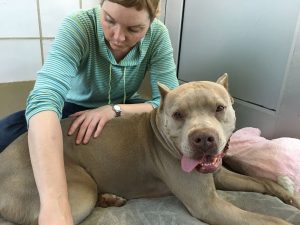
Flickr / germanny
When and Where to Massage Your Dog
When you introduce massage, says Barr, make it just another part of your regular routine. “Resist the urge to do something unique like changing a feeding or walk time, or asking your dog to lay somewhere they wouldn’t usually.” Instead, work your massages in to times that you and your pup typically relax together.
Canine massage doesn’t require any special equipment but you do want to make sure you are working with your dog on a surface that is comfortable and supportive for you both. Other ways to set your dog up for a positive massage experience include:
- Massaging your dog in a quiet area of the home with minimal distractions
- Choosing a time when your dog is sleepy, like before bedtime
- Waiting at least 30 minutes after your pup’s last meal
- Giving your dog a potty break before you begin
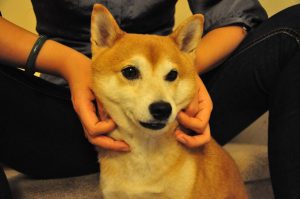
flickr/_tar0_
Canine Massage Techniques
While massage is intended to be relaxing, some dogs might be resistant to it in the beginning simply because it’s unfamiliar. Barr recommends using a light touch and moving slowly at first, sticking to the “soft parts” which are more likely to be muscle tissue. “If you move their arm or leg, do it slowly so they’re not surprised,” she advises. Don’t press straight down on sensitive joints or bones, never bend a joint in an unnatural direction, and skip the areas where your dog prefers not to be handled.
In massage, the most basic strokes are effleurage and petrissage. In effleurage, your hands apply gentle pressure as you move from one end of the muscle to the other between joints. The technique provides a “great way to give your dog a competent massage without having to know detailed anatomy,” explains Barr.
Always massage towards the heart, says Barr, which promotes circulation in the blood and lymphatic system. If you are massaging the lower leg from the ankle to just above the knee, for instance, Barr recommends placing your hands on your dog’s lower leg then applying steady, gentle pressure on the back of the leg as you move up to the back of the knee.
Unlike effleurage, which rubs the length of the muscle, petrissage targets its core using light, steady pressure. “Use light pressure to gently knead the belly of the muscle, the thicker part [which is] usually in the middle of the limb” says Barr. Keep your fingers moving as you go, spending only about 15 seconds on any one muscle.
If your dog seems uncertain or confused by your first attempts at massage, allow them the space they need to feel comfortable. It’s okay if they get up and walk around during the session, says Barr. If they are eager to leave completely, that’s okay, too. Part of a positive massage experience is providing your dog with the opportunity to communicate when they are uncomfortable or weirded out. If they want to leave completely, pause your massage and try again at another time but don’t give up completely, Barr advises. “Once they realize it feels good, they’ll probably be asking for massage time!”
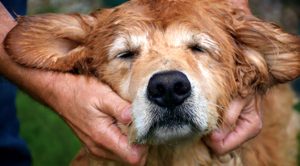
How To Give Your Dog a Massage
For a basic full body massage at home, combine both effleurage and petrissage strokes. Start with just a few minutes of massage at a time and work your way up to longer sessions of 10 minutes or more.
To avoid accidentally injuring your dog never apply too much pressure or attempt to get at the deep tissue yourself. Deep tissue massage should be left to professionals with a deep knowledge of dog anatomy.
- Begin by calming your dog with some gentle petting. Use long, slow strokes on their back, belly and other body parts where they enjoy being touched.
- Start at the back of your dog’s neck, applying gentle pressure in a circular motion with your fingertips..
- Work your fingers down and apply gentle pressure in a circular motion between your dog’s shoulder blades.
- Move to the front legs. Start with your hands at the ankle then slowly move them up to the back of the knee. Some dogs don’t like their legs to be touched so be sure to watch for signs of discomfort.
- Stroke your dog’s back, gently pressing with your fingers as you draw them from the head to the base of the tail on one side of the spine, then from the tail to the head on the other side of the spine. Do not put pressure to the bone, itself.
- Move to the back legs. Apply gentle pressure with your hands at the ankle then slowly move them to the back of the knee, then up to the thigh. If your dog is stiff, you can also try gently stretching their back legs.
- Finish with an ear rub. Place your thumb at the base of the inner side of your dog’s ear and your index finger on the outer side then use gentle pressure to slide them out towards the tip of the ear.
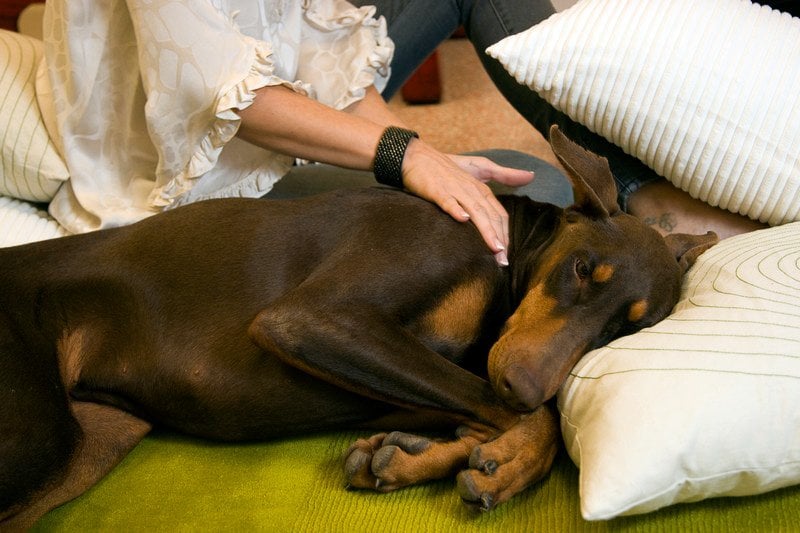
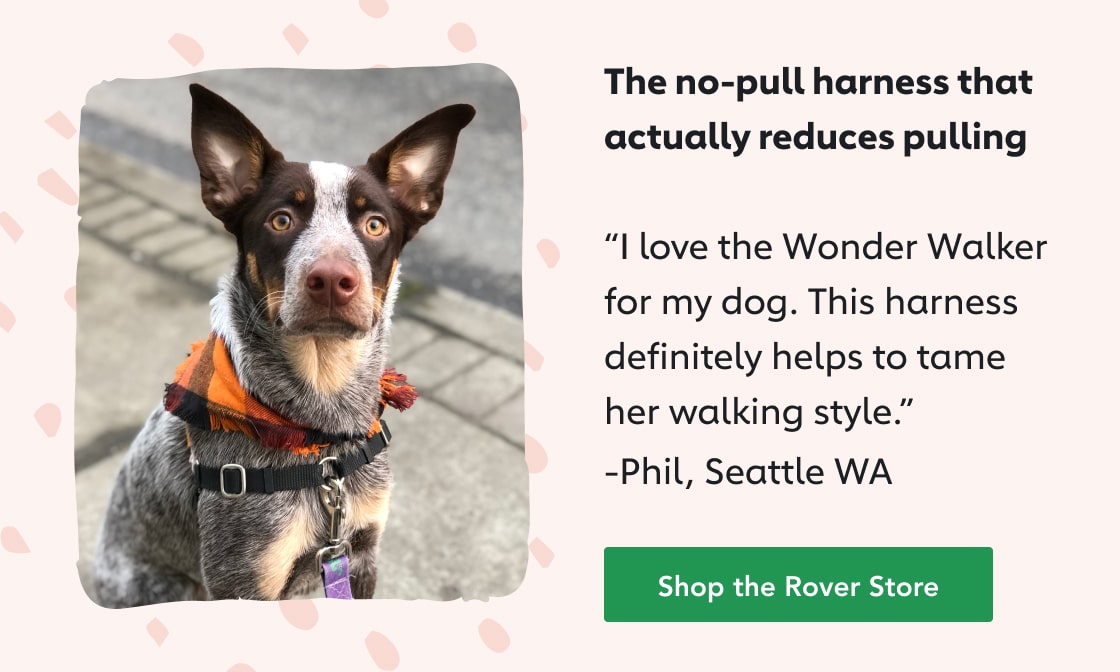
4 Comments